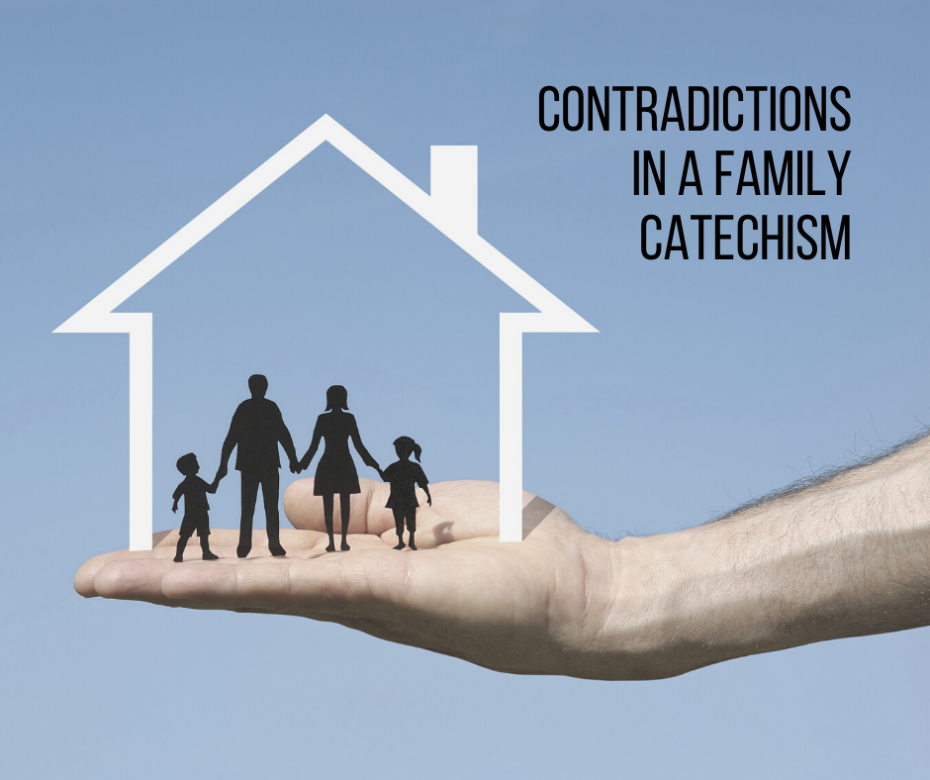I’ve been reading Winfield Bevins’s Grow at Home: A Beginner’s Guide to Family Discipleship. It is a simple introduction to every parent’s responsibility to teach his or her children about Jesus. The book (or booklet) contained little new information for me, but it might be helpful to a family thinking about this issue for the first time.
The fourth chapter, “Teaching Children Truths through Catechism,” contains a simple “Family Catechism” to use with your kids (pp. 47-52). For the most part, the catechism is clear, and I agree with much of it. But when it comes to teaching about salvation, it gets fuzzy. Bevins does not consistently emphasize faith as the sole condition of being born again.
For example, questions 15, 25, and 35 emphasize faith or believing:
15. Q. What are we saved from?
A. We are saved from sin and death by grace through faith in God.25. Q. What does the Holy Spirit do in our life?
A. The Holy Spirit baptizes every believer into the body of Christ and bestows upon us spiritual gifts.35. Q. What is our duty to God?
A. Our duty is to believe and trust in God.
However, in other questions, the condition of salvation changes:
17. Q. What must we do to be saved?
A. We must repent of our sins and accept Jesus as our Lord and Savior.
No mention of faith here. Now there are two conditions: repentance plus acceptance. But what does that mean? Is acceptance a synonym for faith? What does it mean to repent? Bevins defines repentance in the next question:
18. Q. What does it mean to repent?
A. To repent means to turn from our sin to God in order to live a new life of obedience to Christ.
If repentance means turning from sin to living “a new life of obedience to Christ,” then isn’t Bevins teaching salvation by “a new life of obedience” plus “acceptance”? That would be works salvation.
However, maybe living that new life is the result of repentance and not the act of repentance itself. In which case, the condition of salvation would be “turning from sin to God” plus “acceptance.” But there’s still a problem—Bevins is not clear that the only condition to be born again is to believe in Jesus.
Repentance is very important, no question about it. And Bevins is right that repentance involves turning from sin to God. But repentance is not a co-condition with faith to have everlasting life (see Bob’s book Turn and Live). The only condition is to believe in Jesus for the eternal salvation He promises.
In question 21 Bevins writes:
21. Q. What do we mean by everlasting life?
A. We will live with God forever.
But here is what he says about assurance:
22. Q. What is our assurance as Christians?
A. Our assurance as Christians is that nothing, not even death, shall separate us from the love of God, which is in Christ Jesus our Lord.
That’s true. Believers can be assured of God’s love. But what Bevins does not say, but should, is that believers are assured of living with God forever (i.e., having everlasting life). Why? Because of Jesus’ own promise to the believer, namely, that believers “have” everlasting life (John 3:16, 36; 5:24; 6:47). And the only condition to have everlasting life is to believe, believe, believe. One act of faith is all it takes to live with God forever.
Bevins does not make that clear in his Family Catechism. I wish he did. You should definitely make that clear when you’re catechizing your kids.


